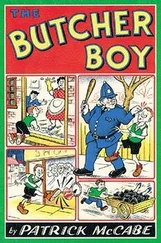He had taken a couple of jobs for Orloff, and done them, and come to collect. It all seemed to have started with those two in the alley in Denver. As soon as he’d shown up with a few bumps and bruises, everything had changed. They all turned on him like sharks when one of them is bleeding. But that couldn’t be it. It was too ridiculous. And they wouldn’t have killed Orloff just because the specialist he’d hired had a black eye. But they’d ignored the moratorium that had held in Las Vegas for years, and killed everyone they could find. Now they were after him and they weren’t going to give up. That meant that whoever had killed Orloff still felt vulnerable—but to what? He didn’t even know for certain who was paying Orloff. It might be Balacontano, or Toscanzio, Lupo, even Damon.
Whoever it was had sent soldiers all over the country looking for a single man, even with Castiglione dead. Even the death of the old consigliere hadn’t distracted him, although the families would now be spending most of their time watching each other to see who moved first.
So he had to find out. The one who paid Orloff had too much juice to ignore; he’d used Little Norman as his errand boy, and had watchers waiting everywhere. But whoever it was was worried about something, and the soft spot had to be in Las Vegas. The link was Orloff.
The more he thought about it, the more angry it made him. It was stupid. Uneconomical. He had taken the contracts on the usual terms. He’d dealt only with Orloff and never inquired about who was paying the bill or why he wanted Veasy and the Senator. He hadn’t been curious about it. He’d done his work and that should have been the end of it. He hadn’t even been that curious about the killing of Orloff, although it had seemed bad luck that it had happened before he’d been paid. He’d behaved like a professional. But they’d gone too far. They’d panicked and shot down everything that moved. And that was stupid. Because they should have left him alone.
WHEN ELIZABETH AWOKE it was dark, but she had the disconcerting feeling that she was already late for something. It was a feeling of urgency; something had begun and she was still in bed. She heard the knock on the door, and remembered the sound of it. Somebody had been knocking for several minutes. As she got out of bed she called, “I hear you,” and the knocking stopped. She turned on the light and squinted at her watch on the nightstand—four thirty. It had to be Brayer, afraid to use the phone. Her bathrobe was draped across a chair, but even with that she felt naked. “Just a minute,” she called. It was foolish, she thought, but was it more foolish than opening the door to a knock in the night? The gun fit into the pocket of her robe. She kept her hand on it when she unchained the door and opened it.
The man at the door was a stranger. He wasn’t even as tall as Elizabeth, but he gave the impression that he was big because his broad shoulders and belly seemed to belong to someone taller. His hair was dark, but beginning to turn gray.
“What?” said Elizabeth, not sure whether she was angry or not, but positive she was uncomfortable.
“You’re Elizabeth Waring,” said the man. Elizabeth realized that it had somehow been intended as the answer to her question.
“I know that,” she said. “It’s four thirty.”
The man said, “Please, can I come in?” He looked past her into the room as though he longed to be there. The look on his face startled her. Brayer hadn’t sent him.
“What do you want?” she asked. Her grip on the pistol tightened.
“Please,” he said, “I have to talk to you.” She hesitated, so he whispered, “FGE.”
She let him in and closed the door. He said, “Do me a favor, and take the gun out of your pocket. You can point it at me if you want, but in your pocket it might go off by accident and hit us both.” He sounded sad, as though he had resigned himself to putting up with a great deal of incompetence.
Elizabeth obliged him. She aimed the gun slightly to his side, but it was in sight. “What do you want?” she repeated.
“I want to be a material witness. Turn myself in and tell you stories.”
Elizabeth said, “Stories?” But she was thinking, it’s happening; he really is one of them trying to come in from the cold. But he’s coming to me, and I don’t know what to do with him. I can’t even call for help because the telephone is tapped.
“Yes,” he said, “I want to make a bargain with you. I want immunity, a new name, protection. In return I’ll give you information about some people I know, testify in trials, the works.’
“That all takes time,” said Elizabeth. “And we hardly ever do it. How do we know your information and testimony are worth it?”
The man sighed. “If what I know wasn’t enough to do them some damage, why would I want protection bad enough to come here?”
It hadn’t occurred to her before, but it sounded true. If a man was willing to get involved at all … but she decided not to pursue it now, while she was still disoriented from sleep. “What’s your name? Who are you?”
“I’m Dominic Palermo.” He shrugged. “I don’t imagine you know who I am. I was Ferraro’s partner.” He corrected himself. “Friend and partner.”
Elizabeth understood. “So you’re afraid they’ll get you too. The way they got him in the gift shop. And that’s why you came here, now. You didn’t want them to know.”
He nodded and smiled, then seemed to hesitate. “I came to you to turn myself in.”
“All right,” she said, “the problem is, I don’t know when they’ll be able to get the Attorney General to agree to your terms. When do you plan to actually come in for good?”
“For Christ’s sake,” he said, “I’m standing in front of you. I’m here. Now.”
“But I thought you had conditions,” said Elizabeth. “A bargain.” She didn’t understand.
“That’s only for what I tell you,” he said. “Not for going in as a material witness.”
“You don’t seem to understand, Mr. Palermo,” said Elizabeth. “They won’t consider you a witness unless you tell them something. You can’t sit in a cell and bargain.”
“I’ll chance it,” he said. “Meantime I’ll be alive.”
She thought about it. “All right. What we’ve got to do is get you over to the Bureau. You know you would have been smarter to go straight into the FBI office, don’t you? What if somebody saw you come in here?”
“No,” he said. “I’m not turning myself in to them. It’s to you. The Justice Department, not the FBI. Remember that, it’s part of the bargain.”
“But it’s exactly the same thing. The FBI is part of the Justice Department. We have to go there.”
“I won’t,” said Palermo. “Look, honey. You don’t seem to know how to do this, so I’ll help you out. We’ll help each other out. Whoever brings in somebody like me is going to look terrific—you’ll get promotions, bonuses, whatever you people give each other. And your organization has control of the information. Like your boss can say to somebody—the police commissioner in New York, maybe—‘I know who’s running heroin in at Kennedy Airport. What have you got for me?’ So believe me, it’s to your advantage to hold onto me. Knowledge is the most valuable thing in the world.”
She ignored the argument and decided to ground herself in facts. “But the Justice Department doesn’t have field offices like the FBI. Most of them are just offices where lawyers work on federal cases, and it’s usually civil cases at that. There’s no place to put a material witness, and nobody trained for that sort of work.”
“Look,” he said, “I’m willing to talk, but you’ve got to go in to the FBI office downtown—or better still, maybe Brayer and a pair of armed field agents would take him there.
Читать дальше












